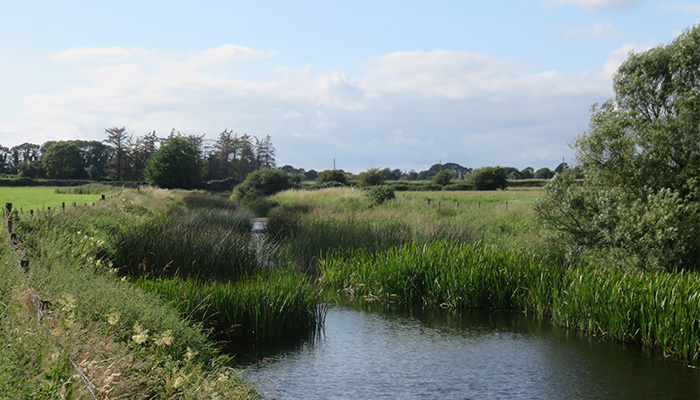Farmer commitment and actions on water quality recognised

The Better Farming for Water Stakeholder Steering Group met in Teagasc Oak Park Carlow, yesterday, Thursday, 17 July to review the work being undertaken by the sector under the initiative to improve water quality.
Progress in implementing the ‘8 Actions for Change’ in the Better Farming for Water Campaign was presented to the group, with feedback on what actions are being implemented on farms.
The Better Farming for Water Stakeholder Steering Group is Chaired by Jim Bergin and is made up of representatives from Teagasc, Department of Agriculture, Food and the Marine, Department of Housing, Local Government and Heritage, Environmental Protection Agency (EPA), Irish Farmers Association, Irish Creamery Milk Suppliers Association, Irish Co-operative Organisation Society, Marca, Meat Industry Ireland, Dairy Industry Ireland, Tillage Industry Ireland, and Local Authority Waters Programme.
Chairman of the Stakeholder Steering Group, Jim Bergin said: “It’s pleasing to see this ‘all of sector’, public and private, collective approach to tackling the challenge of water quality.
“I am really encouraged both by the recent data from the EPA showing improvement in the nutrient content of our waterways and, more importantly, the collective, combined effort by all sections of the Agri sector to address water quality.”
Teagasc Director, Professor Frank O’ Mara said: “The targeted approach in the ‘Better Farming for Water Campaign’ of supporting all farmers to focus on three critical management areas on their farms, namely: Nutrient management; Farmyard management and Land management, will tackle the complex issues that arise when trying to improve water quality. Farmers are on the journey and have bought into the campaign and are implementing the actions.“
Noel Meehan, Head of the Teagasc Water Quality Knowledge Transfer Department, provided an update on the establishment by Teagasc of Catchment Implementation Groups focused on eight of the main river catchments and their sub-catchments. The groups will include representatives from relevant farm organisations, processors of meat, dairy and grain in the catchments, regulatory authorities, catchment-based community groups and advisory groups.
Nitrates Directive and the Habitats Directive
The meeting in Oak Park discussed the emergent policy situation in relation to the more intense linkage between the Nitrates Directive and the Habitats Directive as Ireland engages with the European Commission to retain its Nitrates Derogation.
The Committee acknowledged the heightened uncertainty of the current policy position for farm families, while unanimously acknowledging their considerable commitment and actions in delivering improved water quality, as recently reported by the EPA for 2024.
As further evidence, 3,895 farmer applications have been made to the €50 million Farming for Water EIP Fund, including a substantial number of applications by grain growers for the planting of catch crops to take up nitrogen over the winter period.
The committee re-affirmed its belief that achievement of the objective of good, or high ecological status in our water bodies is fundamental to retaining Ireland’s Nitrates Derogation and compliance with the Habitats Directive and to maintaining the reputation for sustainability that Irish food enjoys. It is clear that responsibility for this objective rests with ‘all farmers’ regardless of farm enterprise and not just ‘derogation farmers’.
The current challenge from the European Commission is for Ireland to provide clarity and assurances on compliance with the Habitats Directive in the granting of derogations as part of its application for continuance of the facility.
Jim Bergin said: “The Steering Committee unanimously agrees that a whole of Government and whole of sector aligned approach is the best avenue towards optimising Ireland’s position and should be considered not only in relation to the scientific approach to assessment, but also the future economic and social impacts of the plan on farm families.”
“Even though there is much work to be done in order to achieve clarity on the current position, the committee fully acknowledges the importance of communicating with farm families at appropriate junctures in order to support them through this concerning period, and to reflect their progress towards improved water quality,” Jim Bergin added.
For more on the Better Farming for Water Campaign, visit here.
